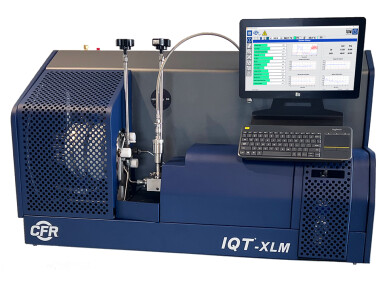Analytical Instrumentation
How Can Catalysis Save Diesel?
Jan 05 2018
Diesel may harbour a dirty reputation, but now a team of researchers from the Universities of St Andrews and Newcastle are championing an eco-friendly breakthrough. It's founded in catalysis research and could lead to the development of clean diesel engine technology that could help combat the global air pollution crisis.
Defining catalysis
Catalysis is a key process that underpins the chemical industry and allows manufacturers to produce a host of industrial chemicals. It also plays an important role in cleaning up air pollutants that are emitted into the atmosphere. Generally, catalysts are made up of metallic nanoparticles, often in the form of ultra-fine layers of platinum group metals deposited upon a substrate. The performance and resilience of the catalyst is determined by the way in which the particles interact with the substrate.
Over the past few years researchers have been exploring the use of exsolution metal nanoparticles deposited on perovskite oxides. Thanks to the socketed, sturdy structure this framework has unlocked new dimensions in catalysis, as well as energy conversion and storage technologies.
The art of "chemistry at a point"
This has empowered researchers with the insight to prove that contrary to popular belief, exsolved particles do not dissolve back into underlying perovskite once oxidised. Instead, they remain attached to their original locations and continue to undergo additional chemical transformations which dramatically alter their composition, structure and function. This phenomenon is called "chemistry at a point" and could mark a significant step forward when it comes to cleaning up diesel emissions while simultaneously oxidising CO and NO.
The findings were published in the scientific journal Nature Communications, with head researcher Professor John Irvine commenting, "This concept 'chemistry at a point' enables the design of compositionally-diverse confined oxide particles with superior stability and catalytic reactivity wide applicability in clean energy processes and environmental remediation."
Combating air pollution and public health
In 2015 the British government released data suggesting that exposure to NOx and other diesel engines particulate matter emissions cause around 52,000 deaths a year in the UK. This means that the new findings could have far-reaching implications not just for the "green diesel" industry, but for public health across the globe.
As well as cleaning up the roads, environmentalists are also exploring new ways to clean up the skies. For a closer look at the latest AccuStandard technologies don't miss 'IP-585 – Determination of fatty acid methyl esters (FAME) from bio-diesel in aviation turbine fuel'
Digital Edition
PIN 25.5 Oct/Nov 2024
November 2024
Analytical Instrumentation - Picturing Viscosity – How Can a Viscometer or a Rheometer Benefit You? - Sustainable Grease Formulations: Evaluating Key Performance Parameters and Testing Method...
View all digital editions
Events
Dec 03 2024 Dusseldorf, Germany
Dec 08 2024 Anaheim, CA, USA
Turkey & Black Sea Oil and Gas
Dec 11 2024 Istanbul, Turkey
Dec 19 2024 Aurangabad, India
Jan 20 2025 San Diego, CA, USA



















